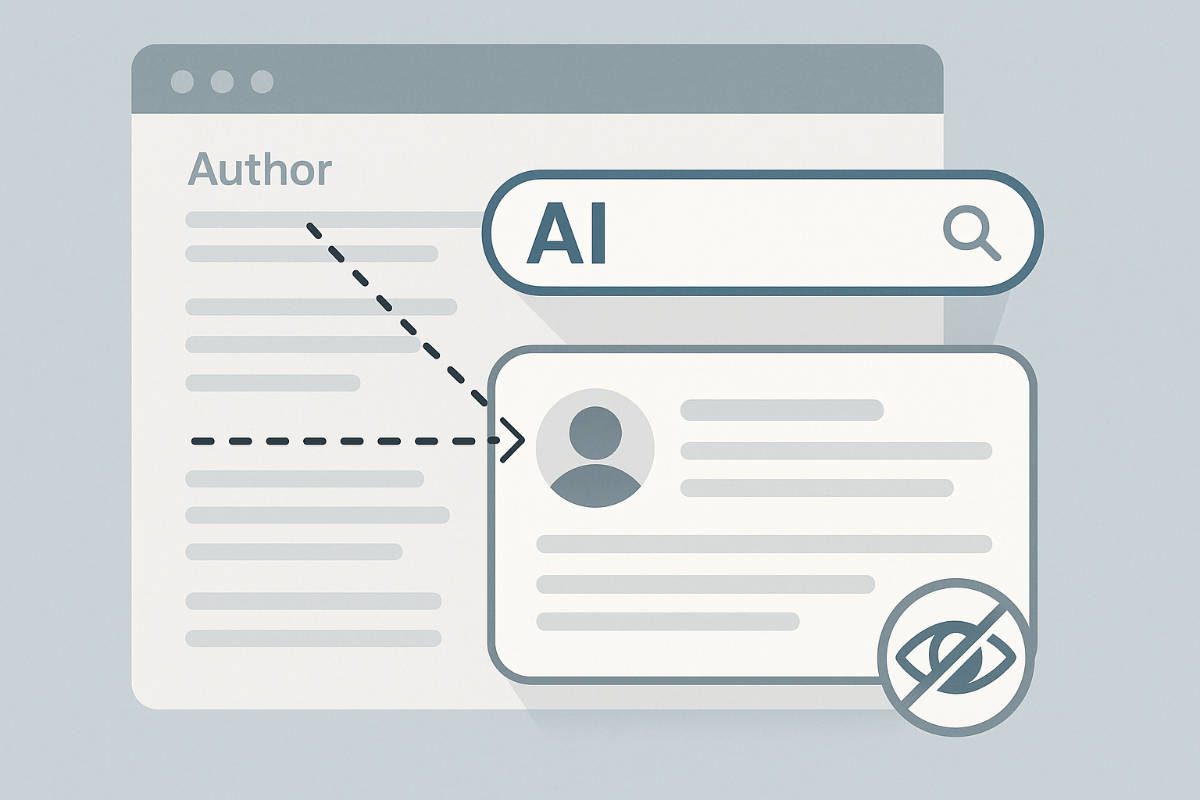
The Problem: Your Website Is Invisible to AI and You Don’t Even Know It
You’re ranking well. You’re publishing content. You’re doing, “everything right.” But your traffic is dropping. Your content is being read, but not credited. And no one told you the rules of SEO would be rewritten!?
Welcome to the age of AI-powered search where search engines generate their own answers, summarise your content, and often skip linking to your site entirely. The new reality.
If you’ve seen strange drops in clicks, zero-click search behaviour, or just feel like your site is getting ghosted by Google… you're not alone.
Here's what’s really going on, and how to fix it.
Problem 1: AI Uses Your Content But Doesn’t Credit You What’s happening?
AI summarisers (like Google’s SGE, Bing Copilot, or Perplexity) crawl your content, extract the answers… and leave your link behind.
The Fix: Use Schema Markup to Help AI Understand and Credit You
What is schema markup?
It’s structured data (based on schema.org) added to your page to tell search engines:
- What kind of content it is (article, product, FAQ, event)
- Who created it
- When it was published or updated
How to implement it:
Use JSON-LD with common schema types: Article, FAQPage, LocalBusiness, Organisation
Tools: Mermaid Schema Generator, Google Structured Data Markup Helper, or SEO plugins (Rank Math, Yoast)
Problem 2: You’re Ranking — But No One’s Clicking
What’s happening?
More users are getting full answers directly on the results page via AI. This is trending toward people not clicking through. They interact with AI rather then exploring further. This draws traffic from your content.
The Fix: Create Content That Answers Complete Questions
Focus on content that directly matches search intent, not just keywords.
How to do it:
Use tools like AlsoAsked.com or look at “People Also Ask” results on Google.
Format your headings around real questions:
- How do I register a business in British Columbia?
- What’s the best time to visit Nanaimo?
Keep answers clear, concise, and well-structured.
Bonus! Use FAQPage schema to your content to increase the chances of your answers appearing as expandable rich results in the search.
Problem 3: Your Page Structure Confuses AI
What’s happening?
AI search tools rely on structured, semantic HTML to understand context. If your content is buried in messy code or broken headings, it will likely be skipped. This is a common issue with website builder software like WIX and Square. They often generate confusing HTML and embedded code that will confuse AI.
The Fix: Clean Up Your HTML and Use Semantic Tags
Checklist:
- Use only one
<h1>(the main title) - Organise sections with
<h2>,<h3>, etc. in logical order - Use semantic HTML tags like
<article>,<section>,<nav>, and<footer> - Avoid putting important content inside carousels, tabs, or JavaScript-rendered components, remember to close tags logically.
<h2>Sub-title</h2>
Problem 4: AI Wants Real Experts, Not Generic Blogs
What’s happening?
Google now favours content that reflects firsthand experience and expertise. AI tools follow suit.
The Fix: Add Author Bios, Brand Details, and Real-World Insight
Ways to boost trust:
- Add an “About the Author” section with credentials and a photo
- Include your company name in structured data using Organisation schema
- Update your content regularly and show last-modified dates
This builds E-E-A-T (Experience, Expertise, Authoritativeness, Trustworthiness), a core part of Google's content evaluation model, and by extension, AI training data.
Problem 5: You Can’t Tell When AI Is Using Your Content
What’s happening?
Analytics doesn't (yet) show you when your content fuels AI summaries, only when someone clicks through. Which in turn, does effect your traffic.
The Fix: Monitor Indirect Signals and Brand Mentions
How to detect AI visibility:
- Use Google Search Console: Watch for rising impressions and falling clicks
- Set up alerts with BrandMentions, Ahrefs Alerts, or Talkwalker
- Compare your brand visibility across search and social platforms
Bonus Tip: Drupal Sites Are Halfway There
If you're using Drupal 11 (like our client Towns Canada), you're in a strong position to handle AI search shifts:
- Structured content types mean schema is easier to apply
- Modules like Metatag and Schema Metatag make JSON-LD output simple
- Templating control gives you clean HTML and semantic markup without page builder bloat
With the right configuration, Drupal can deliver AI-ready content by design, not by accident.
SEO Survival Checklist (for AI-First Search)
| Do This | Why It Matters |
|---|---|
| Add Schema Markup | Tells AI what your content is and who owns it |
| Use Real Questions as Headers | Aligns with AI's answer-oriented format |
| Use Semantic HTML & Headings | Improves parse-ability for AI models |
| Add Author and Brand Info | Builds trust and authority |
| Track Brand Mentions | Helps monitor AI use of your content |
Ready to Future-Proof Your SEO?
AI is already reshaping how users find (and don’t find) your website. iT-werX, helps Canadian businesses build websites that thrive in this new environment, whether you're on Drupal, Laravel, or something custom.
We’ll audit your site and build a real strategy, not just buzzwords.



